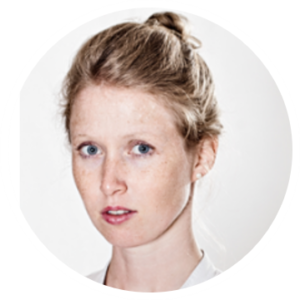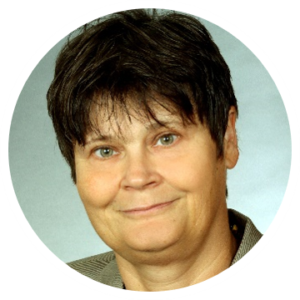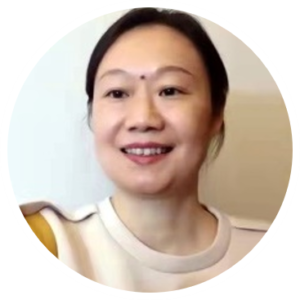The Sino-German Agricultural Centre (DCZ)
The Sino-German Agricultural Centre (DCZ) is a joint initiative of the German Federal Ministry of Food and Agriculture (BMEL) and the Ministry of Agriculture and Rural Affairs (MARA) of the People’s Republic of China.
In March 2015, the DCZ was established as a central contact and information platform in charge of coordinating the bilateral cooperation between Germany and China in the agriculture and food sector. In April 2022, the project entered its third phase.
China is one of the world’s largest food producers and consumers. Therefore, its agricultural development and transformation process is of great importance for its German partners. By bringing together stakeholders from politics, business, and academia, the DCZ promotes the exchange of experience and knowledge to address common challenges and support the sustainable development of the agricultural and food sector in both countries.
Project objectives
Agriculture and food self-sufficiency are of strategic importance to China’s government, as the country relies on trade due to limited arable land. The ruling Communist Party’s annual Strategy Document No.1 is usually devoted to agriculture. The main topics are currently rural revitalization and food security – flanked by the development of an innovative seed system and digitalization in agriculture.
The aim of the DCZ is to establish a mutually fruitful dialogue on common agricultural challenges and to strengthen cooperation between Germany and China. To this end, current projects and activities focus on topics such as environmentally sound, sustainable agriculture and its contribution to climate protection and adaptation, rural development, and food security. Subtopics include, e.g., environmentally friendly animal husbandry, seeds, and smart agriculture.
The DCZ serves as platform for technical and political exchange on new developments with the aim of developing practical recommendations for action. The DCZ also hosts an annual flagship event – the Sino-German Agricultural Week, which includes the Sino-German Agribusiness Conference.
Our objectives at a glance:
- Formulation of agricultural policy recommendations for the development of a sustainable as well as environmentally and climate-friendly agriculture and food industry
- Deepening the expert dialogue and strengthening the exchange between expert organizations from agricultural policy, science, and economics
- Strengthening the scientific exchange between institutions of practice-related research of both countries
Results and achievements
In addition to conferences, seminars, and dialogue formats, the DCZ also organizes expert information trips to Germany and China. A wide range of studies, short analyses, and news is available for download on our website and LinkedIn. Due to the pandemic, face-to-face events are complemented by innovative online formats, e.g., an interview series on smart agriculture in Germany with its own website and workshop modules.
Fact sheet
Download our fact sheet to learn more about the project.
Fact sheet (English)
Fact sheet (German)
Video
Watch what we have accomplished in the first and second phase of the project.
The DCZ team in Beijing
Dr. Aihemaitijiang (Ahmatjan) Rouzi is an expert on Chinese agricultural policy monitoring at the DCZ. He holds a Master and a PhD in geography from the University of Greifswald, the Catholic University of Eichstätt-Ingolstadt (KU), and the Technische Universität (TU) Berlin in Germany. He has been working on numerous research and academic exchange projects between China and Germany for many years. His main research interests are sustainable agriculture, agricultural economics, smart agriculture, rural development, ecosystem services, and water resource management in China.
Tang Bing has many years of experience with Sino-German cooperation projects before she joined the DCZ. She supports the project team, especially the team leader, in their activities and is responsible for office management and financial matters.
German partners
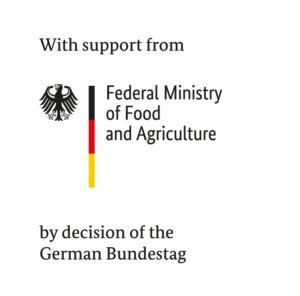
The political leadership and financial support of the DCZ lies with the German Federal Ministry of Food and Agriculture (BMEL) together with the Chinese Ministry of Agriculture and Rural Affairs (MARA).
The BMEL is a cabinet-level ministry of the Federal Republic of Germany. It has its headquarters in Bonn and a second major office in Berlin. It consists of eight departments and under its auspices are various federal agencies, legally independent institutions under public law, and government research institutes.
With its Bilateral Cooperation Programme (BKP), the BMEL supports partner countries in establishing a productive and resource-conserving agri-food sector through dialogues and practice-oriented project activities.
At the international technical level, the ministry regularly engages in the topics of global food security, access to land, sustainable resource management, animal welfare, organic farming, renewable resources, and food safety. The BMEL also organizes the Global Forum for Food and Agriculture (GFFA), which takes place annually as part of the International Green Week in Berlin.
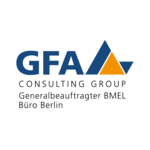
The GFA Consulting Group GmbH (GFA) is the general representative of the BMEL’s Bilateral Cooperation Programme (BKP), and the GFA office in Berlin is the administering and monitoring agency of the DCZ on the German side. As the general agent, the GFA provides the BMEL with strategic, content-related, and methodological expertise. It develops projects and commissions the implementing organizations for projects in Eastern Europe, Asia, Africa, and South America. Furthermore, the GFA accompanies and supervises ongoing projects of the BMEL’s BKP, administers the program budget, and cooperates with project partners.
The GFA Consulting Group itself has a long history of providing effective solutions to the challenges in the global consulting market. Since 1982, the Hamburg-based company has conducted complex studies and projects in over 130 countries. Leading development agencies, ministries, and public clients have entrusted the GFA with the management of projects financed by bilateral and multilateral funds.
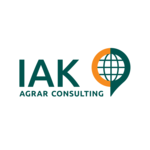
The IAK Agrar Consulting GmbH (IAK) is the lead implementing partner of the DCZ. As an independent agricultural consulting company based in Leipzig, Germany, with more than 40 years of experience, it works for clients from the private sector, for national and international donors as well as for organizations, associations, municipalities, and administrations in Germany and abroad. The main business areas are agricultural business consulting and international cooperation.
The work of the IAK is characterized by its values: sustainability, equal treatment, transparency, integrity, trust, and cooperation based on partnership. Its philosophy is to offer its private and public clients practical, professionally competent, economically efficient, technically up-to-date, and independent consulting services, while adhering to policies and regulations as well as responsibly using public funds.
In all projects in Germany and abroad, the IAK pursues a synergy approach characterized by a transfer of know-how through the cooperation of its own specialists with experts from science, industry, and administration as well as with independent experts.
Moreover, the IAK together with the INL – Institut für nachhaltige Landbewirtschaftung GmbH, offers a sustainability assessment for farms via DINAK – Deutsches Institut für nachhaltige Agrarkultur. With the help of about 30 objectively measurable indicators from ecology, economy, social as well as animal welfare, sustainability is evaluated. The results provide farms with important information about strengths and optimization potential in the company or in production. And they can be used for communication with society, associations, and politics.
The IAK supports the third phase of the DCZ with its core competencies in the fields of:
- Food security
- Sustainable agriculture
- Digitalization in agriculture
- Climate-smart agriculture
- Carbon farming
- Seed development
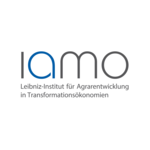
The Leibniz Institute of Agricultural Development in Transition Economies (IAMO), based in Halle (Saale), Germany, implements the DCZ in consortium with the IAK Agrar Consulting GmbH.
The IAMO conducts basic and applied research in the agricultural and food sector as well as in rural areas of the formerly centrally planned economies of Europe and Asia against the background of international developments. This research approach is unique worldwide. The institute significantly contributes to understanding and improving the living conditions of the people and the economic development of these regions. Based on research results, the IAMO develops recommendations for sustainable development in the agricultural and food sector as well as the promotion of livable and vibrant rural areas.
Originality and social relevance are the guiding principles of research. The institute’s research activities are supported by renowned research funding institutes as well as integrated with national and international research networks. Research results are published in recognized academic journals and discussed at international scientific conferences. The IAMO also communicates its research results through various media channels to the scientific community as well as to the political, economic, and public spheres. Through reports, events, policy briefs, and consulting services, the institute contributes to the formation of political and social opinion on current politically and economically relevant issues at national and international level.
The IAMO uses its competencies for the qualification of young scientists, especially in the partner countries. Flat hierarchies and outstanding support for the independent research of young scientists with systematic guidance and promotion of junior scientists are essential of the institute’s work. The IAMO strengthens Halle (Saale) as a science location and the Leibniz brand through its international orientation partnerships with other teaching and research institutions – in particular with the Martin Luther University Halle-Wittenberg (MLU).
Research and knowledge transfer activities are supported by the institute’s international and multicultural staff. Strategic orientation and research management are carried out by integrating the staff competencies in cooperation with IAMO’s internationally staffed scientific advisory board. Regularly updated research programs enable purposeful and independent work in project groups as well as a problem- and target-group-oriented strategic focus.
In line with the Leibniz Association’s mission statement, the quality and results of the work performed are ensured by regular internal and external evaluations. The IAMO is committed to complying with national and international standards of training young scientists, good scientific practices, and quality assurance. The institute creates a working environment of creativity and competition as well as of personal integrity, tolerance, and fairness in dealing with each other. It realizes equal opportunities for all regardless of gender, age, disability, ethnic origin, religion, ideology, or sexual orientation, implements measures to reconcile family and career, and offers attractive working conditions.
Chinese partners
The political leadership and funding support of the DCZ lies with the Chinese Ministry of Agriculture and Rural Affairs (MARA) together with the German Federal Ministry of Food and Agriculture (BMEL). The MARA is an executive agency of the State Council. Its areas of responsibility include, e.g., crop production, animal husbandry, fishery, agricultural reclamation, township and village enterprises, and feed industry.
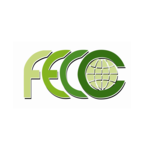
In 2015, the DCZ headquarters in Beijing was established in the offices of the Foreign Economic Cooperation Center (FECC). The FECC is the Chinese implementing partner of the DCZ.
The FECC (and its China-EU Agricultural Technology Center) was founded in 1984. It is a government-affiliated, director-general-level institution under the Ministry of Agriculture and Rural Affairs (MARA) responsible for agricultural foreign economic cooperation.
The guiding principle of the FECC is to promote modern agriculture to ensure food security and to assume responsibility for promoting agricultural diplomacy by coordinating international and domestic markets and resources. It plays a leading role in pursuing the “going global” and “bring-in” strategies in opening up by establishing agricultural multilateral and bilateral cooperation mechanisms. It undertakes activities to improve agricultural technology and development capability in developing countries by introducing Chinese enterprises, talents, technologies, and trade options to the global market.
In 2014, the FECC was recognized by the Food and Agriculture Organization of the United Nations (FAO) as a model for a South-South cooperation research center.In 2015, the Beijing headquarters of DCZ were set up in the offices of the Foreign Economic Cooperation Center (FECC).
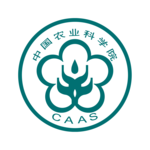
The Chinese Academy of Agricultural Sciences (CAAS) is the Chinese implementing partner of the scientific component of the DCZ.
The CAAS was founded in 1957. It is China’s national agricultural research organization, directly affiliated with the Ministry of Agriculture and Rural Affairs (MARA). The CAAS’ strategic mission is to serve nationwide agricultural and rural development and to empower farmers with science and technology. Its primary mandates focus on strategic and applied research to solve important scientific problems that are of national or regional significance.
The CAAS has about 11,000 staff and 34 research institutes (including nine co-hosted institutes) in 19 provinces, autonomous regions, and municipalities directly under the central government.
It has established extensive international cooperative relationships with more than 40 countries and international organizations. It is also one of the leading institutions of China’s cooperation network.CAAS is the Chinese implementing partner of the scientific component of the DCZ.
Associated projects
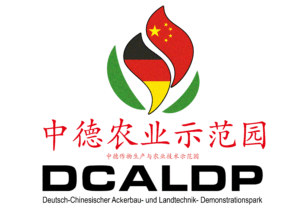 E-mail:
E-mail:
alejandro.figueroa@afci.de
In August 2015, the German Federal Ministry of Food and Agriculture (BMEL) launched the project “Sino-German Crop Production and Agrotechnology Demonstration Park” as part of its Bilateral Cooperation Programme (BKP). The project is located in Jiangsu Province on the grounds of the Huanghai State Farm and belongs to the project executing agency, the Jiangsu Provincial Agricultural Reclamation and Development Corporation (SKIAD).
The focus of the project is to support the sustainable development of Chinese agriculture through advanced training and demonstration in modern adapted crop production.
The project ideally complements China’s current agricultural strategy and, within regional boundaries, helps achieve the Chinese government’s goals for the agricultural sector.
The project ended on 31 October 2022. A new project phase is currently under consideration.
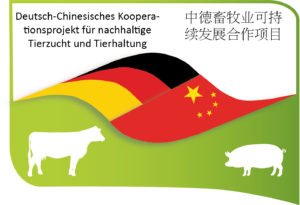 E-mail:
E-mail:
joerg.krapoth@adt.de
henrik.delfs@adt.de
In the third phase, which began in January 2022, the project will support its partners in the key areas of animal welfare and animal husbandry, as well as climate adaptation and protection. Other current topics include sustainable animal husbandry, biosecurity, and strengthening nutrient cycles. The project organizes the exchange of information between Chinese and German as well as European partners from industry, science, and authorities through seminars, expert trips, and digital teaching materials and demonstrates selected innovative approaches on Chinese demonstration farms.
E-mail: Ralph.ridder@giz.de
For more than 30 years, China has run the world’s most ambitious reforestation program, investing heavily in ecological forest rehabilitation and sustainable forest management. Despite these successes, China’s forests remain heavily degraded, resulting in average annual harvests per ha that are about one twentieth those of German forests. To address these issues, the Chinese government is developing a policy framework aimed at domestic forest rehabilitation and limiting wood imports to legal and sustainable timber. The Forest Policy Facility is providing support to the Chinese government in preparing and implementing its forest policy revisions with the aim of ecological forest rehabilitation and increasing standing stock per ha, while also supporting greater sustainable carbon sequestration and improved biodiversity conservation.
E-mail:
n.eichberg@dlg.org
f.tipp@dlg.org
The agricultural sector is an important pillar of the Chinese economy, which the Chinese government considers to be in great need of reform and modernization. At the same time, the EU’s agricultural trade relations with China are highly intertwined, and challenges such as climate change and the decline of biodiversity require joint solutions. The exchange of knowledge and the networking of future important stakeholders and organizations in the agricultural sector are to make an important contribution here.
Through the exchange program, young professionals from Germany and China are given the opportunity to spend time in the respective partner country to establish contacts and strengthen knowledge about the structures of the agricultural sector in the partner country.
The previous annual focus topics of the exchange were: sustainable agriculture, animal production and welfare, and digitalization. In 2022, climate-positive agriculture is the focus topic. Young employees from both countries who are sent by companies, public authorities, research institutions, and associations can participate.





